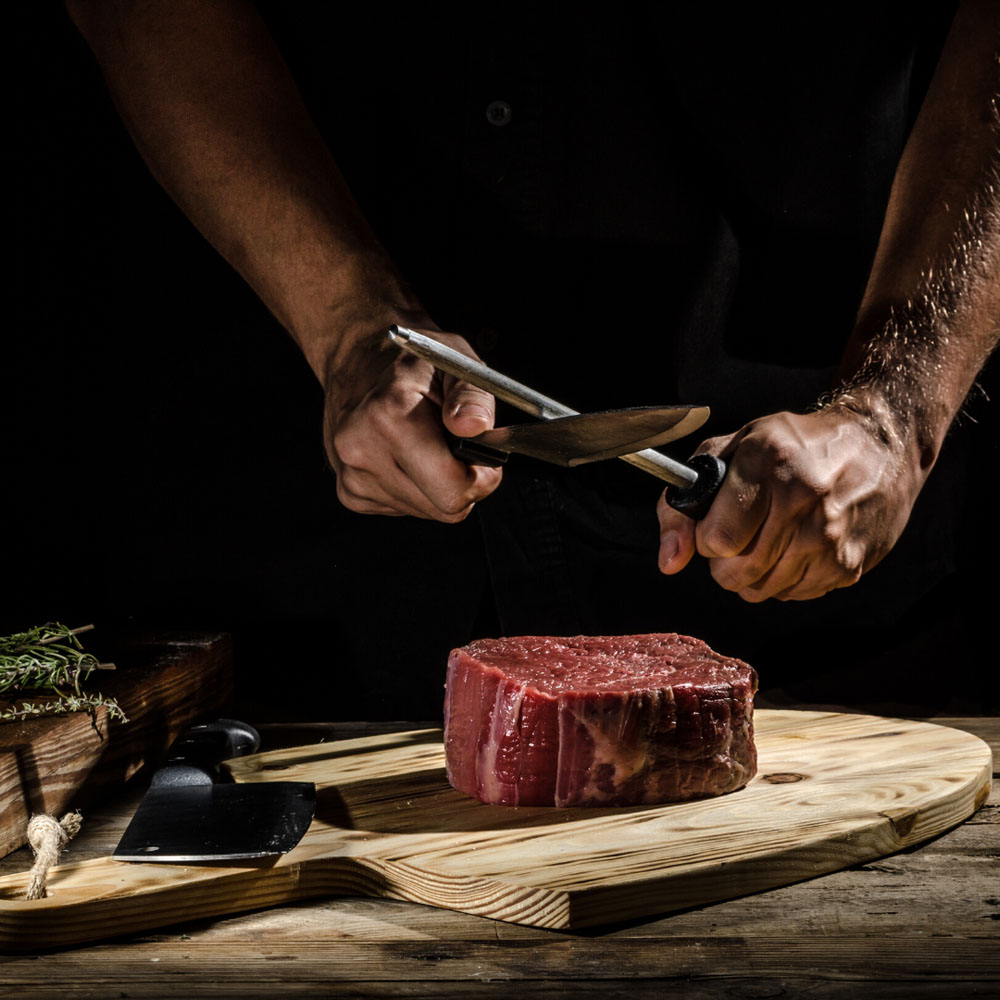Our philosophy has always been around Paddock to Plate – long before it became ethically fashionable! Our farm and butcheries have been supplying premium, sustainably raised meat to the Highlands and beyond for almost 50 years. We have weathered many storms (or lack of them) during this time and maintained our sustainable approach, believing wholeheartedly in what we do.
On our Paddock to Plate tours I talk about how people are becoming disconnected from their food these days, consuming without any real thought to where it comes from. We’ve lost a lot of knowledge also in using cheaper, more flavoursome cuts like this recipe for Oxtail Stew, choosing instead to buy a tray of chicken breasts from the supermarket shelf.
Certainly, there was as big move towards the convenience offered by supermarkets, but I think now we are seeing a swing back, with moves to more ethical and sustainable food choices (as well as supporting and buying local produce). We have always believed, if you choose to eat meat, you should choose to buy free range, grass-fed meat that has been raised naturally, growing slowly, without added hormones. Our goal at Maugers is to educate meat eaters on the choices they make with their buying power, and to explain why pasture fed meat is better tasting as well as a better choice (for you and the animal) then grain fed – I guarantee you won’t be disappointed!
Did you know?
Eighty per cent of meat sold in supermarkets is produced through grain fed intensive farming. Even when the packaging says ‘grass fed’ the livestock may just finish their last weeks on pasture, existing on a grain-based diet until then. Grain fed intensive farming means large numbers of stock in a confined space, all on a grain-based diet. Exercise is reduced, and growth hormones are often used to increase the rate at which the animals can be processed.
What’s the difference?
Grain fed meat is often prized for its fat and smooth texture, their diet is intensively managed, and they will have had limited freedom to move around being raised in more confined spaces.
Grass fed meat produces a more complex and nuanced flavour, reflective of the diet of the animal. The meat is aged for 6 weeks before being sold in the butchery which enriches the tenderness and taste.
Bred for taste
At Laurel View, our herd are unstressed and handled with passive techniques. They live in a natural environment with plenty of access to troughs, trees and creeks, we rotate them through 10-acre paddocks, growing them slowly and to me that’s the way nature intended.
We prefer smaller English breeds such as Angus, Hereford, Devon and Murray Grey, all of which have a better fat coverage (fat coverage = flavour in your meat), all our breeds fatten well on grass and are picked individually, with temperament being a key attribute I look for at the Sales.
June at the Farm
We are known for our sustainable approach to farming and are always looking for ways to give back to the land. The Regenerative farming test we shared last month is underway with soil tests complete and first 30 hectares of manure concentrate has been applied. We are waiting for the results and will share them with you here. I’m running my stock in larger numbers and rotating more often. The idea is to increase the health of the soil, encouraging microbes, bugs and adding more carbon – I put the cattle on one paddock for a day, they eat the grass, cultivate and fertilize the soil and then move on to the next (leaving paddocks to rest in the rotation).
Want to know more about Laurel View Farm and our Paddock to Plate tours?
While our tours are currently on hold due to COVID-19 restrictions, this month I filmed a short video in support of Destination Southern Highlands Pie Time Virtual tour to show some highlights. The whole video is great fun to watch but we come up about 6th if you want to scroll straight to us.


